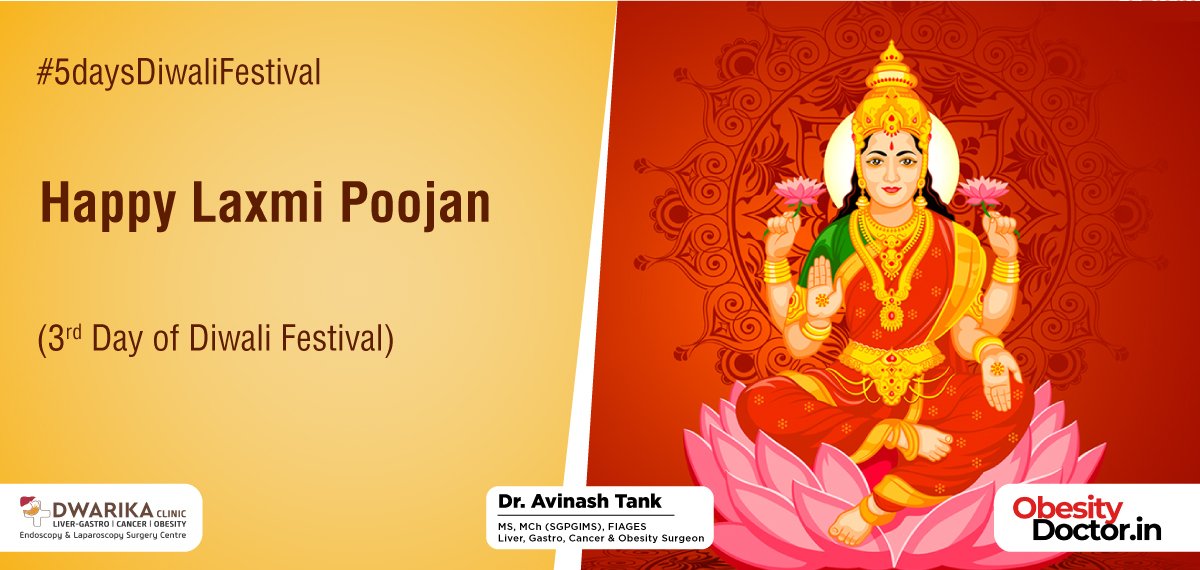
Reading Time: 3 minutes
Diwali 2023: Laxmi Worship & Celebration of Return of God Ram to Ayodhya. Diwali, also known as Deepavali, is a festival celebrated with immense joy and devotion across India.
It is often referred to as the Festival of Lights, signifying the victory of light over darkness and good over evil.
While Diwali is a multifaceted celebration with various traditions, one of its most prominent aspects is the worship of Goddess Laxmi.
In this article, we delve into the history and significance of why Laxmi is worshiped on Diwali, exploring the origins of this cherished custom and how it is celebrated in different parts of India.
Historical Significance of Laxmi Worship on Diwali
Diwali holds profound historical significance. It is believed to commemorate the return of Lord Ram, Sita, and Lakshman to Ayodhya after their triumphant victory over the demon king Ravana.
The people of Ayodhya illuminated the entire city with lamps to celebrate their return. The light symbolized the triumph of good over evil and the defeat of darkness.
It is in this historical context that the worship of Goddess Laxmi, the Hindu deity of wealth and prosperity, became a central aspect of Diwali.
The arrival of Goddess Laxmi in one’s home is seen as an omen of wealth and abundance, bringing prosperity and happiness.
History of Lakshmi Worship on Diwali
There are many different stories about why Lakshmi is worshipped on Diwali.
One popular story is that Lakshmi was born from the ocean of milk during the Samudra Manthan, or churning of the ocean.
The Samudra Manthan was a cosmic event in which the gods and demons churned the ocean of milk to obtain the nectar of immortality.
Lakshmi emerged from the ocean of milk as a beautiful woman, and she was chosen as the consort of Lord Vishnu.
Another popular story is that Lakshmi is the daughter of King Himavat and Queen Mena. She is said to have been born on the fourteenth day of the dark fortnight in the month of Kartika (October-November). This day is now celebrated as Naraka Chaturdashi, or Roop Chaudas, the second day of Diwali.
Date of Celebration
Diwali usually falls in October or November, depending on the Hindu calendar.
It is celebrated on the fifteenth day of the dark fortnight (Krishna Paksha) in the Hindu month of Ashwin.
Different Names in Different Parts of India
While the core concept of worshiping Goddess Laxmi remains the same, Diwali is celebrated under different names in various parts of India.
For instance, in North India, it is commonly known as Diwali, while in West Bengal, it is celebrated as Kali Puja, dedicated to Goddess Kali.
In Tamil Nadu, it is celebrated as Deepavali, and in some regions, it marks the start of the Hindu New Year.
How It’s Celebrated
Diwali is celebrated with great enthusiasm and devotion.
People clean and decorate their homes, light oil lamps (diyas), and adorn their doorways with colorful rangoli patterns.
Temples and homes are illuminated to welcome Goddess Laxmi.
On the night of Diwali, families come together to perform aarti (a ritual of worship with lamps), seeking the blessings of Goddess Laxmi.
They light oil lamps and place them around the house, inviting prosperity and wealth.
The exchange of gifts and sweets is a common practice, and people burst firecrackers to celebrate the victory of light over darkness.
Diwali feasts with traditional dishes and sweets are shared among friends and family.
Celebration in Different Religions
Diwali is not limited to the Hindu religion. It is also celebrated by Jains, Sikhs, and Buddhists, albeit with variations in significance and customs.
For Jains, Diwali marks the anniversary of Lord Mahavira’s attainment of nirvana. It is a day of self-purification and seeking forgiveness for one’s sins.
Sikhs commemorate Diwali as Bandi Chhor Divas, which celebrates the release of Guru Hargobind Ji from imprisonment along with 52 other kings.
Buddhists in some parts of India celebrate Diwali to honor the conversion of Emperor Ashoka to Buddhism and the acceptance of the Buddhist path of peace and non-violence.
Conclusion
Diwali 2023: Laxmi Worship & Celebration of Return of God Ram to Ayodhya. The worship of Goddess Laxmi on Diwali represents the aspiration for prosperity, both material and spiritual.
It is a beautiful reflection of the belief that the light of goodness and wealth will always dispel darkness and poverty.
As people come together to celebrate this festival, they not only seek wealth and prosperity but also embrace the timeless values of love, unity, and the victory of good over evil.
Diwali is a festival that embodies the hopes and dreams of millions, shining brightly as a beacon of light and hope.
May the blessings of Goddess Laxmi bring abundance and prosperity into your life this Diwali. Happy Diwali!
